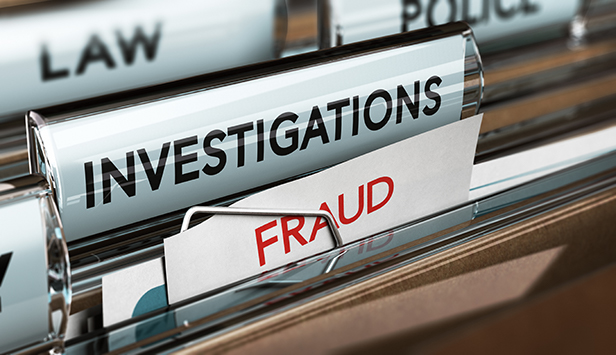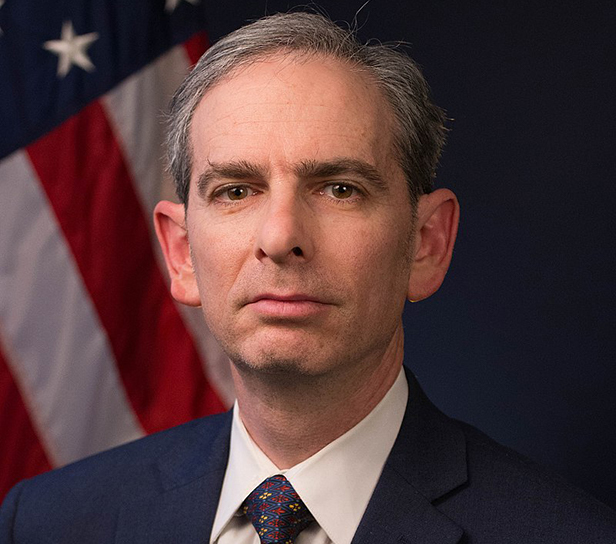News May 07, 2020
Feds Charge First Alleged PPP Scammers
The New England pair is accused of committing fraud in an effort to obtain nearly $550,000 in Paycheck Protection Program loans.
Two New England men are the first people in the United States to be charged with attempting to defraud the CARES Act Small Business Administration’s Paycheck Protection Program (PPP).

Federal authorities say David A. Staveley, also known as Kurt D. Sanborn, 52, of Andover, MA, and David Butziger, 51, of Warwick, RI, tried to swindle more than half-a-million dollars in forgivable loans that the SBA guarantees.
To obtain loan money through the PPP, the two men claimed to have dozens of employees earning wages at four different entities when, in fact, there were no employees working for any of the businesses, according to prosecutors.
“Tens of millions of Americans have lost their jobs and have had their lives thrown into chaos because of the coronavirus pandemic. It is unconscionable that anyone would attempt to steal from a program intended to help hard-working Americans continue to be paid so they can feed their families and pay some of their bills,” said Aaron L. Weisman, U.S. Attorney for the District of Rhode Island.

Aaron L. Weisman, U.S. District Attorney, Rhode Island
A criminal complaint filed in U.S. District Court in Providence, RI, formally charges Staveley/Sanborn and Butziger with conspiracy to make false statements to influence the SBA and conspiracy to commit bank fraud. Additionally, Staveley is charged with aggravated identity theft. Butziger is charged with bank fraud.
According to a federal investigation, Staveley and Butziger exchanged emails about their scheme, discussing the creation of fraudulent loan applications and supporting documents to seek loans guaranteed by the SBA for COVID-19 relief through the PPP.
In his loan applications, Staveley requested approximately $438,500, authorities allege. He said he needed the money to pay dozens of employees at three restaurants he purported to own – two in Warwick, RI, and one in Berlin, MA. However, investigators determined that one of the Rhode Island restaurants, the former Remington House, and the Massachusetts restaurant, On The Trax, were not open for business prior to the start of the COVID-19 pandemic, at the time the loan applications were submitted, or at any time thereafter.
“Moreover, Staveley did not own or have any role in the second Rhode Island restaurant, Top of the Bay, for which he was seeking financial relief,” authorities said in a statement.
Yes, some promo firms got their PPP money. But as @TheresaHegel reports, there are still plenty of companies who have applied and are still waiting. https://t.co/Hf91kKfJyt
— C.J. Mittica (@CJ_ASIEditor) May 6, 2020
According to court documents, Staveley’s Massachusetts restaurant was closed by March 10, when the town of Berlin revoked the business’ liquor license for numerous reasons, including that “Sanborn” allegedly misrepresented that his brother owned the restaurant. Investigators obtained information that Staveley/Sanborn allegedly used his brother’s personal identifying information in other real estate transactions as well.
Meanwhile, Butziger applied to the SBA for a $105,381 loan to support an unincorporated business, Dock Wireless, that he said he owned.
Butziger claimed in documentation filed with the bank and in a telephone call with an FBI undercover agent posing as a bank compliance officer that he had seven full-time employees on Dock Wireless’ payroll, including himself. Still, The Rhode Island State Department of Revenue provided information to the IRS of having no records of employee wages having been paid in 2020 by Butziger or Dock Wireless. Agents interviewed several of the supposed Dock Wireless employees who reported that they never worked for Butziger or Dock Wireless.
“As alleged, David Staveley and David Butziger tried to capitalize on the coronavirus crisis by conspiring to fraudulently obtain more than half a million dollars in forgivable loans that were intended to help small businesses teetering on the edge of financial ruin,” said Special Agent in Charge Joseph R. Bonavolonta of the FBI’s Boston Field Office. “Thankfully, we were able to stop them before taxpayers were defrauded, but (these) arrests should serve as a warning to others that the FBI and our law enforcement partners will aggressively go after bad actors like them who are utilizing the COVID-19 pandemic as an opportunity to commit fraud.”
On March 29, the CARES Act went into effect. It’s a federal law that provides for emergency financial assistance to the tens of millions of Americans trying to survive the economic devastation wrought by shutdown measures tied to the coronavirus pandemic. Initially, the CARES Act included $349 billion in forgivable loans to small businesses to help with job retention and other expenses, through the PPP. The funds quickly ran dry. In April, Congress approved an additional $310 billion in PPP funding.
The PPP allows qualifying small businesses and other organizations to receive loans with a maturity of two years and an interest rate of 1%. PPP loan proceeds must be used by businesses on payroll costs, interest on mortgages, rent, and utilities. The PPP allows the interest and principal to be forgiven if businesses spend the proceeds on these expenses within eight weeks of receipt and use at least 75% of the forgiven amount for payroll.
While well-intended and definitely helping some businesses, the program has also been beset with problems. Some promotional products suppliers and distributors were able to gain quick access to funding, but others have endured a messy application process and prolonged silence from lenders.
